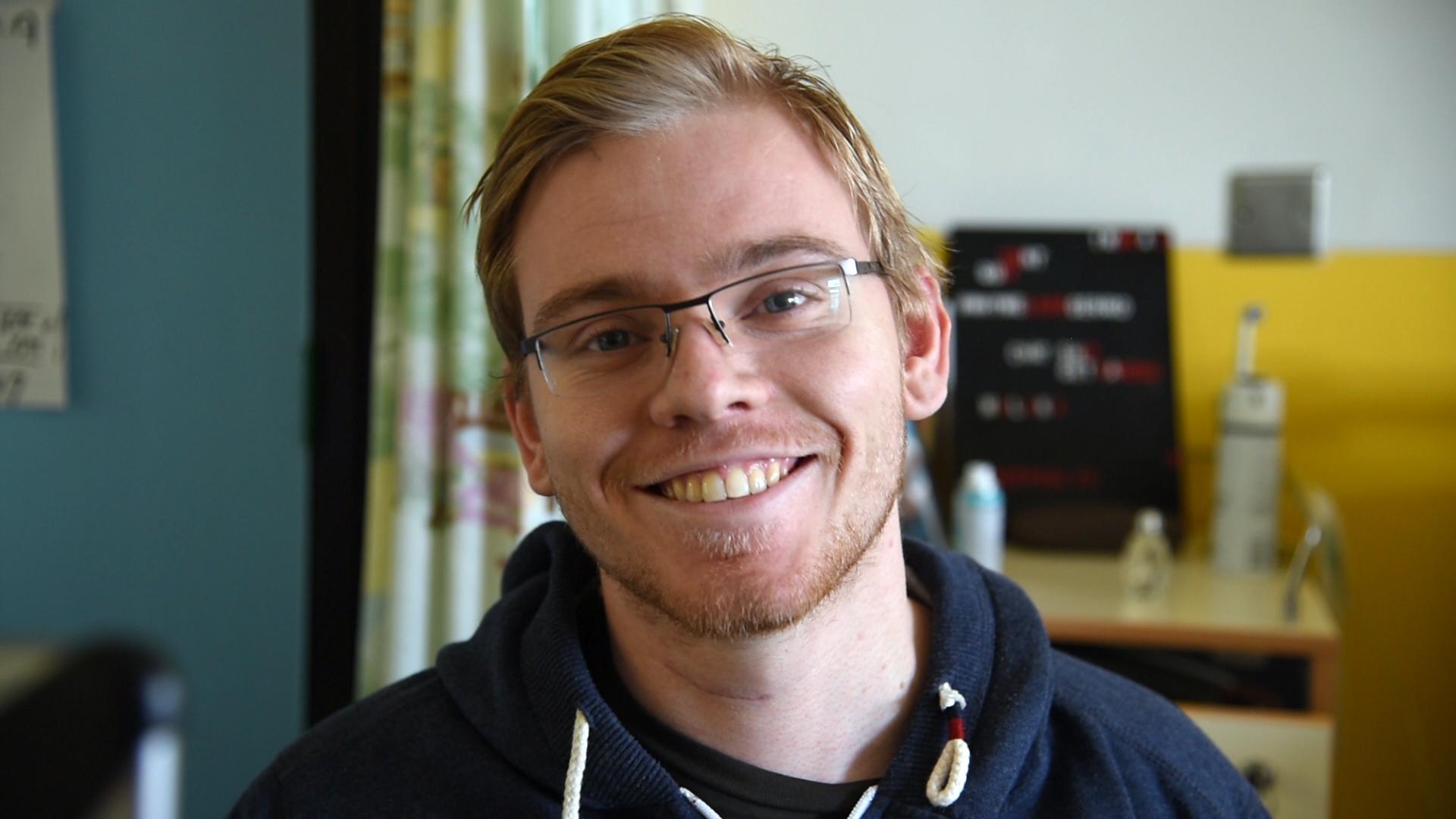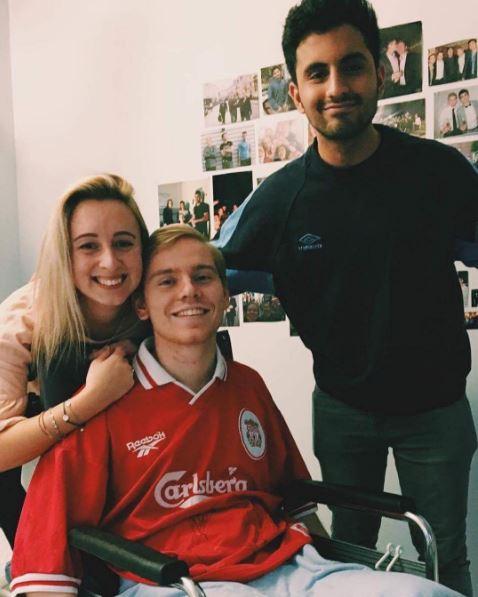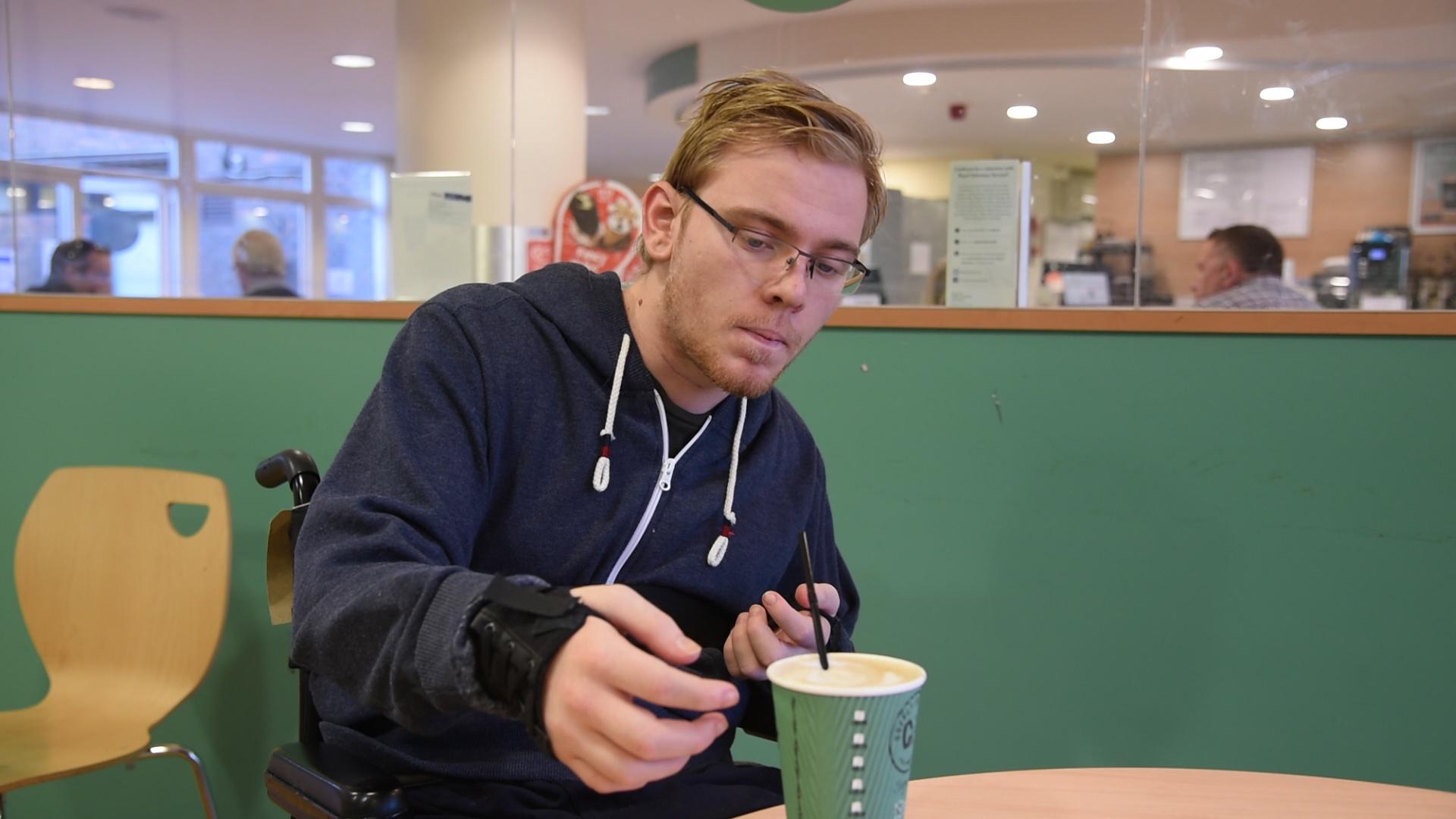How my 22-year-old brother has tackled life-changing paralysis with a smile
'If you can’t laugh at yourself it’s going to make it a lot harder for you'

“Part of me did think I was going to die.”
My brother sits across from me, with no hesitation or a sense of regret in his tone as he describes the scariest moment of his life, and how he lost the use of his lower body.
“The friends I was with thought I was joking at the time. I could hear them when I was floating in the water saying: ‘Gerard stop messing about. Gerard this isn’t funny.’
“I thought ‘if they don’t realise that this is serious then, yeah, I’m going to die.’”
It was almost three months ago to the day when I got a hurried phone call at 1am to say he’d been in an accident, and would be going into surgery shortly.
Gerard was working in Sigtuna, Sweden, for a couple of weeks in July, tutoring secondary school students. Being the daring, care-free student my brother is, he decided to head down to a nearby lake with some friends.
The water sat at knee-height, but without any signs to say otherwise Gerard took the plunge, head-first. He fractured his spine, leaving him with C5 tetraplegia, meaning he has no use of his hands, wrists or legs.
An air ambulance, medevac repatriation, and three hospitals later, my brother is finally in a place he feels a bit more at home.
Sat in a quiet room at the National Spinal Injuries Centre, in Stoke Mandeville, this was my first real chance to chat to him in private since his accident. He smiles patiently as I think carefully what to ask him.
That smile is significantly special to me. It’s the one I saw on birthdays; it’s the one looking back at me after every resolved teenage argument; and now it means more to me than ever, because it says he’s comfortable, he’s safe, and everything is going to be okay.

“Very early on – I think it was the second day when I was lying in hospital in Sweden – I turned round to myself and said ‘there is no point getting upset,’” he says, with a more serious look.
“There is no point looking back and thinking ‘if I’d jumped slightly to the left or slightly to the right of that rock; if I’d decided not to jump in; if I hadn’t been at that bar that night; if I hadn’t gone to Sweden.’ – it’s almost irrational to think that.
“There’s no point looking back because it’ll just make things worse, make me feel worse.“
This positive attitude is one Gerard’s friends have been behind from the moment they heard of his injury.
When he arrived back in the UK they worked together to make sure someone was able to keep him company across the week. So many turned up at times it became a battle of schedules just to fit in my parents.
It’s those same friends who have helped both Gerard and the rest of my family get through some of the tougher parts of the last few months; long messages, phone calls, trips and everything in between.

“It helps to have so many friends who are so encouraging," he says. "They’re really positive, and immensely supportive.”
If diving into a dark lake in a small Swedish town doesn’t give off that vibe already, it’s important to mention how much of an independent person my brother is. He spent most of the year in Canada studying, and then travelled across the country on his own.
His drive for independence hasn’t wavered; it’s only the barriers that will stop him from acquiring it.
“I won’t let it change me," he says. "To be honest, a lot of the everyday tasks, I look at them like a PlayStation game, which is really funny.”
My own biggest fear – as during that worrying phone call in July I was told he’d hit his head –was that he’d have brain damage, and that the next time I saw him he would be a different person. The only difference is how mature and strong he’s become.
His sense of humour hasn’t changed though. He jokes with hospital staff, and shocks them with how he remembers their name, even after the briefest acquaintance.
“You can choose to view this challenge in any way, and I think to choose it in a fun way because at least that’ll make the experience more enjoyable.
“I laugh at myself a lot. I laugh when I get food all down myself, when I spill things, or when I get things wrong in physio. If you can’t laugh at yourself it’s going to make it a lot harder for you.”

His determination reminds me fondly of playing sport – or even arguing – with him as teenager. He doesn’t give up. And each time I go to see him he’s a bit further along the line. He can now feed himself, operate a wheelchair and slowly work some electronic devices. Even on the day I went to see him he explains how he’s learned how to lift a cup on his own, and even play table tennis. He’d probably still beat me.
It’s fair to say this experience hasn’t changed my opinion on disability – I’ve always been privileged in my family’s widely accepting and well-educated nature – but it certainly has opened my eyes to the barriers people can face that the world certainly isn’t privy to.
“I have a new found respect for people with all levels of injury and all levels of disabilities,” says Gerard.
“They are majorly set back in many ways, but they don’t see the disability as an obstacle. Many really challenge themselves, and having that challenge every day and really pushing themselves is inspiring.”
As an older brother, I've always been ready to lead the way during the tough periods of family life, to keep everyone upbeat when all seems lost. But as I leave the room and head towards the exit, it dawns on me that, throughout all this, instead it's been my younger brother – and that infectious smile – which has helped me.
Join our commenting forum
Join thought-provoking conversations, follow other Independent readers and see their replies
0Comments